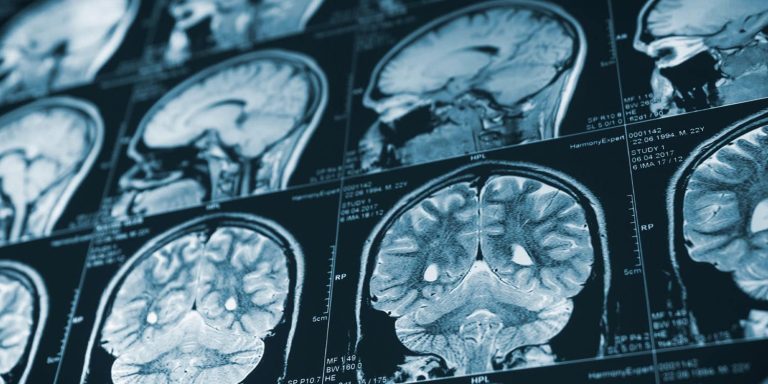Dementia is not an inevitable consequence of aging, and it is thought that around 40% of dementia cases can be prevented (or at least delayed) by making certain lifestyle changes.
There are currently 12 known modifiable factors that increase the risk of dementia. Focusing on these factors and taking proactive steps early and consistently throughout life can have a significant impact on brain health and overall wellness, as well as reducing the risk of developing dementia later in life.
Here are six of the most important lifestyle changes you can make while you're young to help maintain your brain health.
1. Good Nutrition
Nutrition is important for a variety of reasons.
Although the brain makes up just 2% of your body weight, it uses around 20% of your daily energy supply, making proper nutrition a key factor in brain health.
Additionally, a good diet can help you maintain a healthy weight and lower your risk of diabetes, both of which are associated with a 1% increased risk of dementia. A healthy diet also protects against high blood pressure, which is associated with a 2% increased risk of dementia.
No two people in their 20s are the same. Some of you may be saving for a mortgage, others struggling to pay rent. Some of you may be swiping on dating apps, others trying to figure out parenting. Whatever your current challenge, our Quarter Life series has a post for you to share in a group chat and remind you that you're not alone.
Read more from Quarter Life:
One of the best diets you can do for a healthy brain is a variation of the Mediterranean diet, which numerous studies have linked to improved brain function and a lower risk of dementia.
So if you want a healthy brain, make sure your diet is rich in whole grains, vegetables, fruits (especially berries), nuts, beans, and oily fish. Try to limit your intake of pastries, sweets, fried foods, and cheese. For most people, focusing on improving their diet will be better for their brain health than taking specific vitamin and mineral supplements (unless you have a nutritional deficiency).
2. Stay hydrated
Our bodies are made up primarily of water – most data suggests they're around 60% water – and maintaining this state and staying well hydrated supports not only brain function but overall health.
Dehydration affects our physical and mental performance in many ways, from increased fatigue to impaired brain function. Memory, attention, concentration and reaction time are also affected by dehydration.
Proper hydration supports optimal brain performance and helps prevent a rapid decline in brain function.
3. Reduce your alcohol intake
Studies have shown that drinking too much alcohol may increase your risk of dementia by 1%.
Alcohol not only affects brain function, it also changes the structure of the brain. Studies have shown that alcohol is associated with fewer neurons (cells that send signals throughout the brain), fewer white matter (the network of nerve fibers that allow communication between brain regions), and reduced volume. All of these changes affect brain function.
Drinking more than 21 units of alcohol per week increases your risk of dementia, but the NHS recommends no more than 14 units per week to stay healthy. Alcohol also increases the risk of some cancers (including mouth, throat and breast cancer), stroke and heart disease.
4. Stay active
Exercise has many benefits for the brain: it increases blood flow to the brain, improving brain function, reduces inflammation, and increases brain activity and capacity, making it more efficient. All of these changes are highly beneficial for long-term brain health and are thought to prevent cognitive decline.
Aim for at least 150 minutes of moderate-intensity exercise or at least 75 minutes of vigorous-intensity exercise per week, or both. But even if you manage to achieve this goal, research shows that as few as 7,500 steps per day are enough to increase brain capacity.
5. Socialize frequently
Social isolation and loneliness are associated with an increased risk of depression and cognitive decline.
But research shows that good social connections — like living with others, joining a weekly community group, or seeing family and friends every week — are associated with slower cognitive decline. Socializing stimulates our attention and memory and strengthens brain networks.
Volunteering, getting involved in your local community, and having a meal and chat with friends every week are all great ways to keep your brain healthy.
6. Keep learning
Even if it's been years since you left school, that doesn't mean you should stop learning: learning has a protective effect on the brain, and studies have shown that lifelong learners have a 7% lower risk of dementia.
Some of the best activities you can do for your brain health include learning a new language, trying a new sport, playing a musical instrument, or solving puzzles.
Other things to remember
In addition to these tips, other ways to lower your risk of dementia include using hearing aids if you experience hearing loss, avoiding traumatic brain injuries, and aiming for at least six to eight hours of sleep a night.
The brain is perhaps the most important organ we have, and taking care of it while we're young will ensure it continues to function properly as we get older.
This article is republished from The Conversation under a Creative Commons license. Read the original article.

